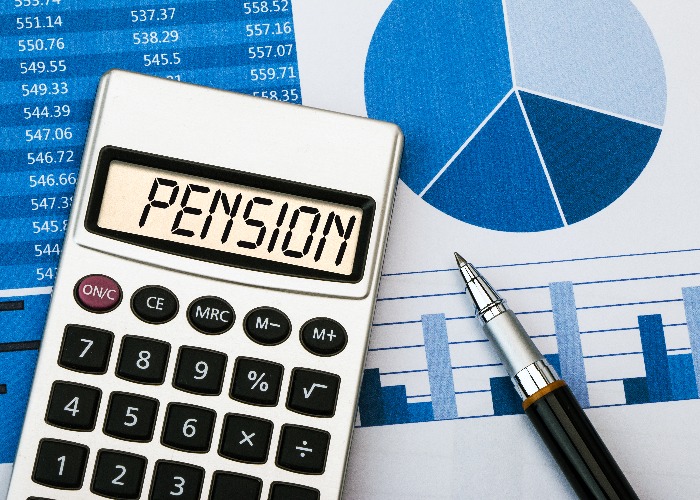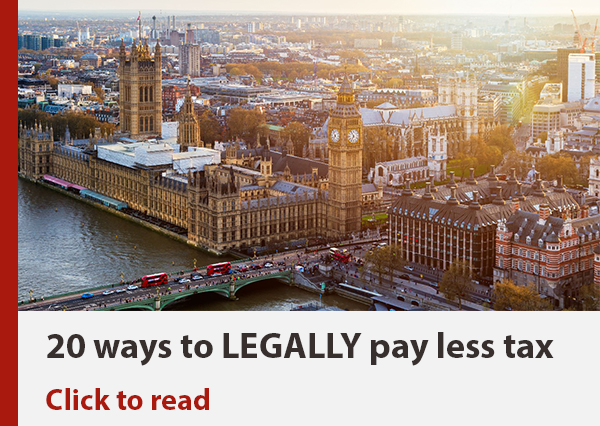Opinion: it's time to tax State Pensions at source

HMRC is making it harder for some pensioners to pay the right levels of tax on their State Pension income.
Paying the right tax on your income is not just important during your working life; it’s just as important to get right once you give up work and retire.
However, actually doing so may be more difficult than you would expect, with a new issue pinpointed by tax firm RSM putting pensioners in a difficult position.
Take the pain out of your tax return: let Simply Tax sort it for £115
How am I supposed to pay tax?
It would seem that HM Revenue & Customs (HMRC) has been writing to a host of taxpayers of late, letting them know that they are being removed from the need to file self-assessment tax returns.
While this seems like a good thing ‒ one less thing to worry about ‒ the problem is that in many cases these pensioners do need to actually pay tax on their pension income, and don’t have an obvious way of doing so.
RSM gave the example of a saver it has heard from, who has deferred receiving their State Pension.
As we have explained previously, doing so means you increase the size of your State Pension payments.
With this particular person, their State Pension will now be worth £20,000 a year, on top of savings income of £1,500.
That’s high enough that they will need to be paying Income Tax, yet without the ability to file a Self Assessment they have no mechanism for doing so.
This is not an isolated example either, with a host of pension savers understandably worried about where this will leave them with the taxman.
That worry is not helped given how difficult it can be to actually get in touch with HMRC ‒ one of those RSM spoke to spend 45 minutes trying to get through to the taxman on the phone before abandoning their efforts.
The frozen Personal Allowance
In recent years we have seen significant increases to the size of the State Pension thanks to the triple lock system, and there’s another big hike on the cards next year as a result of significant wage growth figures.
Given these increases, greater numbers of pensioners are going to be dragged into paying Income Tax on their retirement income, even if they only have a fairly modest personal pension in place.
And that’s because there has been no movement on the personal allowance, which sets out how much you can earn each year before paying Income Tax.
The Treasury has frozen this until 2028, along with other Income Tax thresholds, and that is going to mean more people end up in the position of having to chase up the taxman to clarify precisely how they pay tax on their pension earnings.
Take the pain out of your tax return: let Simply Tax sort it for £115
How should we tax the State Pension?
Given this odd situation, it’s clear that there needs to be a reliable solution.
The idea that we should have pensioners calling up the taxman in order to work out how to pay the tax they owe is ridiculous.
So what are the options?
A simple way around this would be to hike the level of the personal allowance each year at the same rate as the state pension increases.
This way we would at least be confident that pensioners would not find themselves suddenly being expected to pay tax when this wasn’t the case previously, though obviously there would be a financial hit to doing so.
Given the state of the nation’s finances, I wouldn’t hold my breath on this being implemented.
I do like the alternative suggestion from RSM that State Pensions be taxed at source.
This way State Pension payments would essentially be handled under the PAYE system, much like normal salaries are.
It’s a seamless way to ensure that you only need to pay tax on your State Pension income where necessary.
Take the pain out of your tax return: let Simply Tax sort it for £115
Making a mess of taxing pensions
Sadly the state pension issues are not the only example of the taxman making a bit of a hash of how it goes around collecting tax on pensions.
Ever since the introduction of the pension freedoms, the best part of a decade ago, HMRC has had a problem.
When a person makes their first withdrawal from their pension pot, the taxman insists on treating this as if it represents what their regular income will be from the pension.
The trouble is, that’s not the case at all.
Given we have the option of taking a 25% tax-free lump sum from a pension pot, many of us instead take a large chunk to start, and then only a modest amount thereafter.
However, because of the way that this first withdrawal is viewed, it ends up being taxed incorrectly, with savers essentially being bumped up the tax thresholds, and therefore paying a much higher rate.
As a result, every year the taxman ends up having to hand back enormous sums to savers in overpaid tax.
For example, in the third quarter of the year HMRC had to repay more than £61 million, almost double the sum repaid in the same period of 2022.
It’s a problem that this continues to be the setup and that no solution has been identified which means savers are actually taxed accurately from the outset.
Comments
Be the first to comment
Do you want to comment on this article? You need to be signed in for this feature
